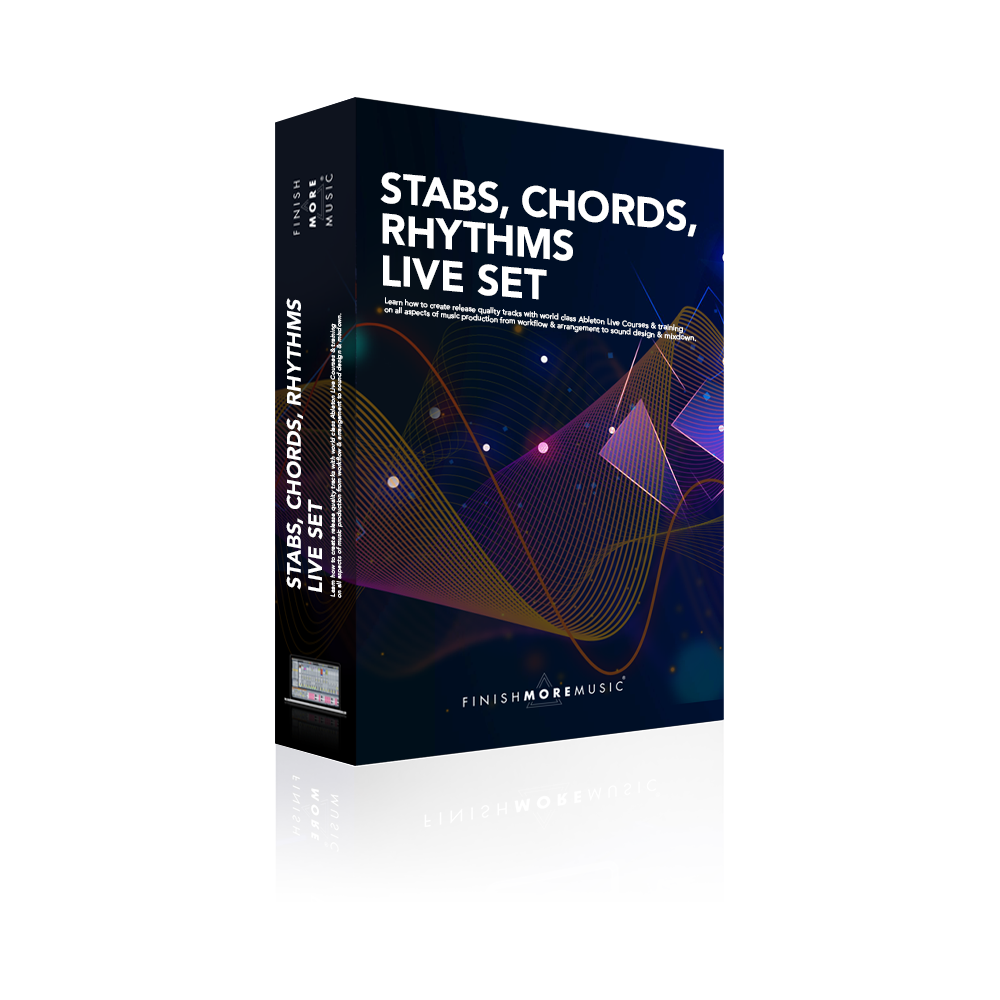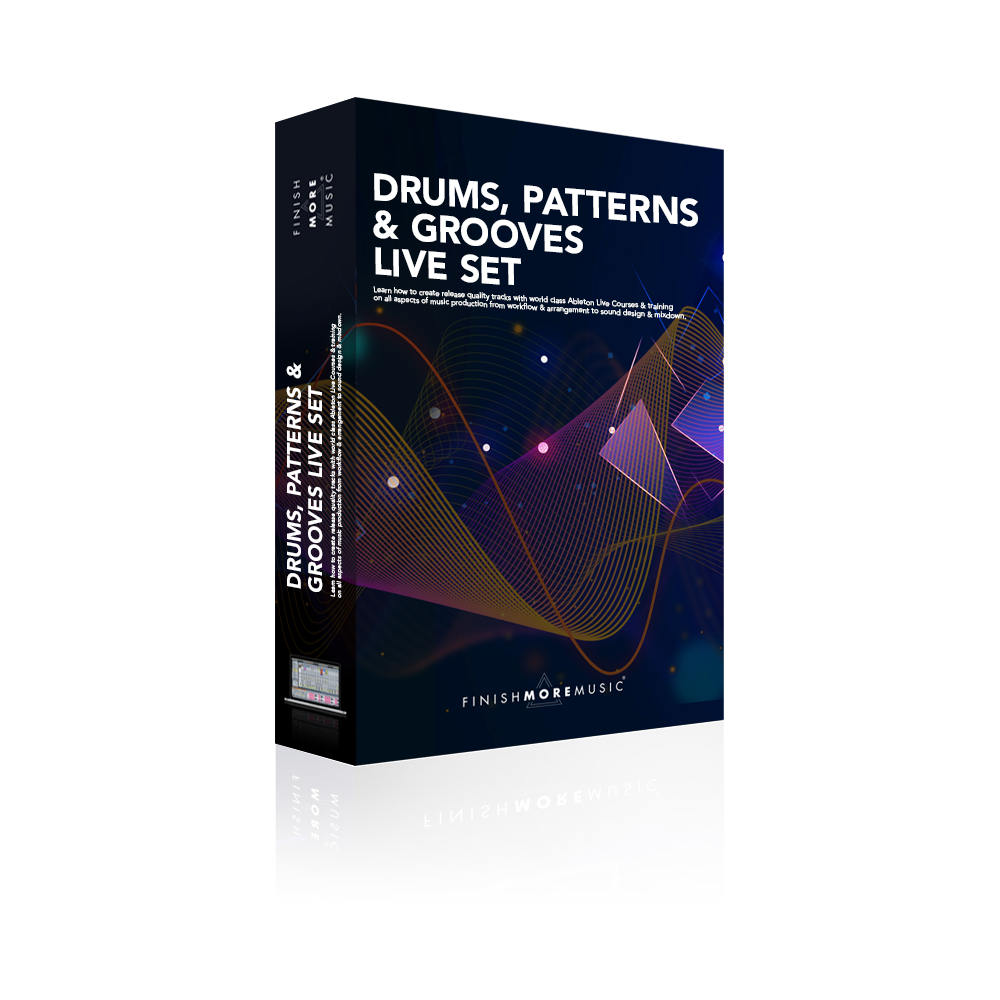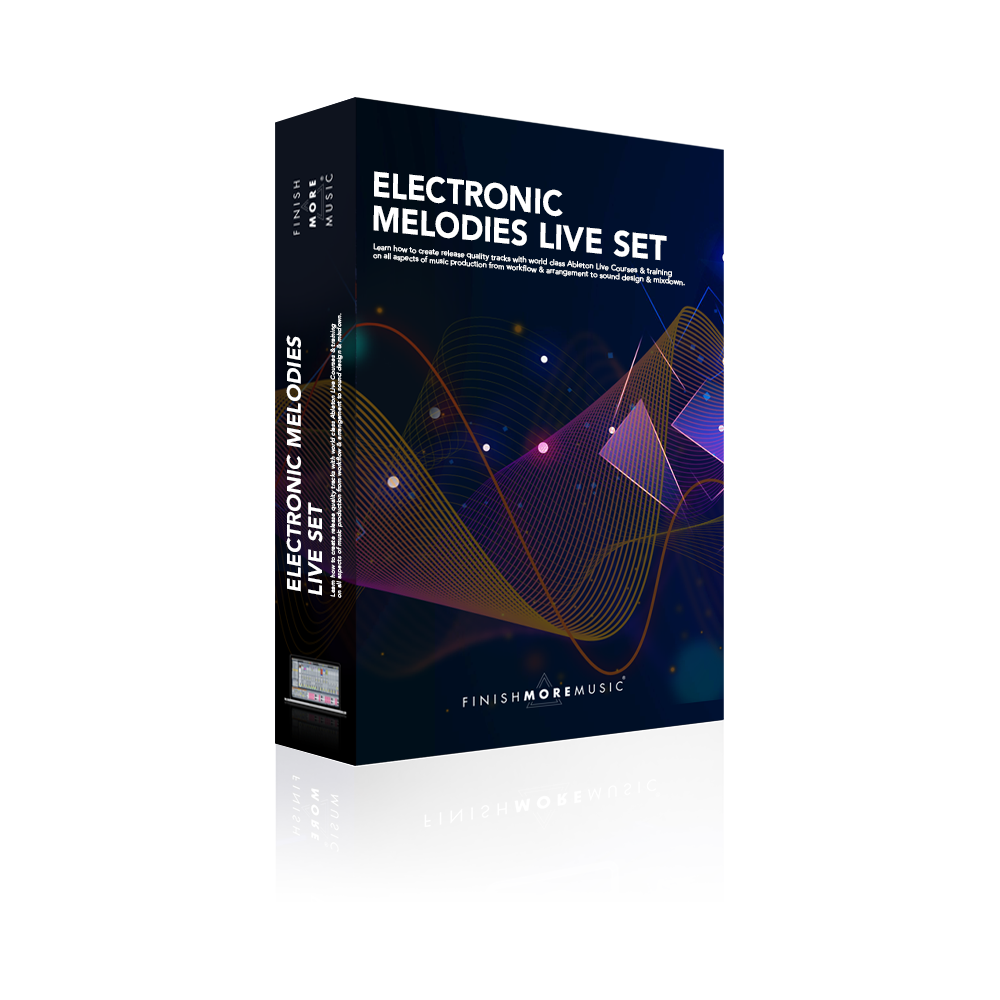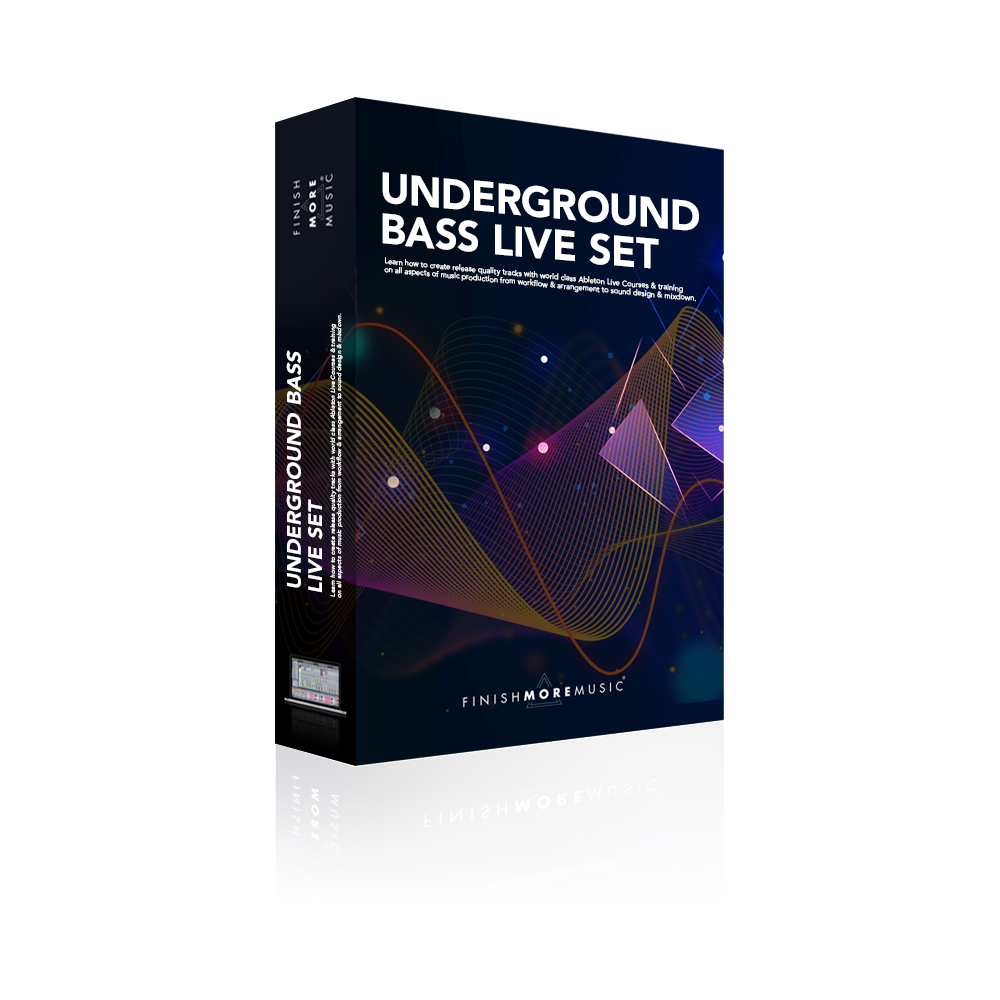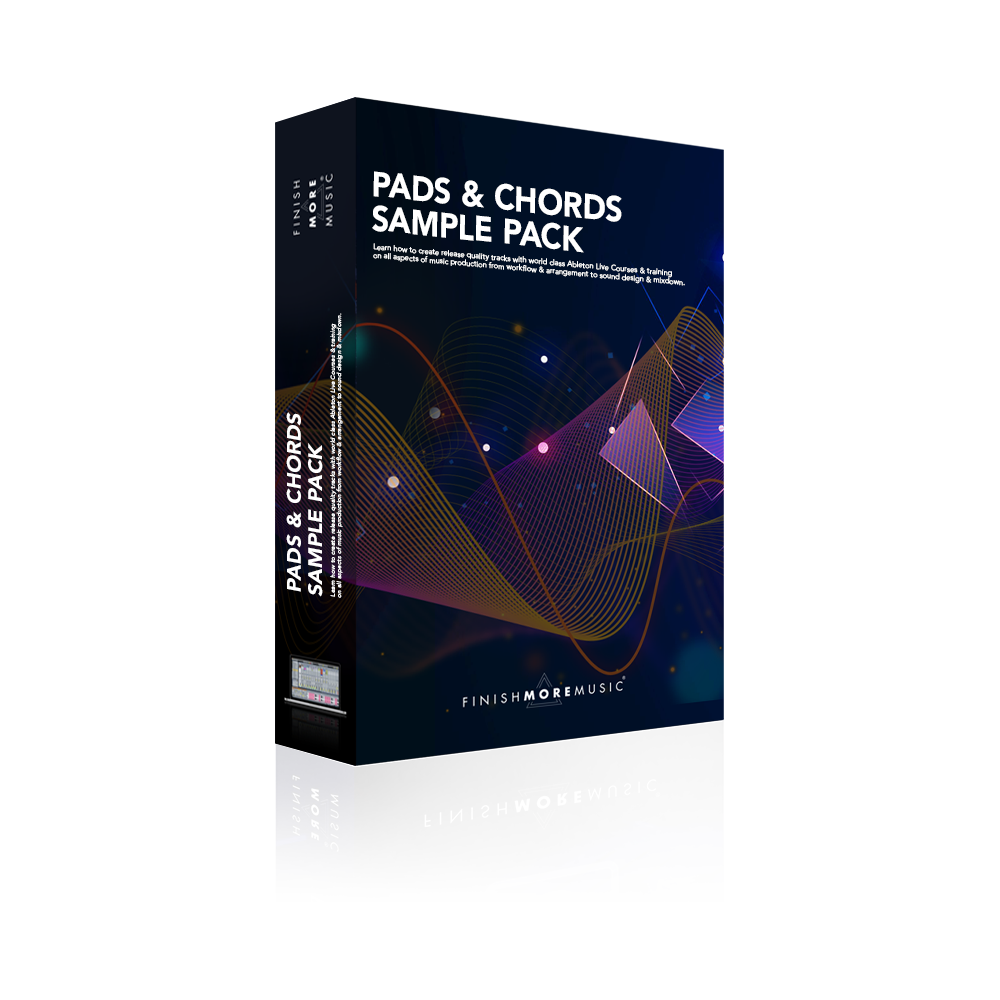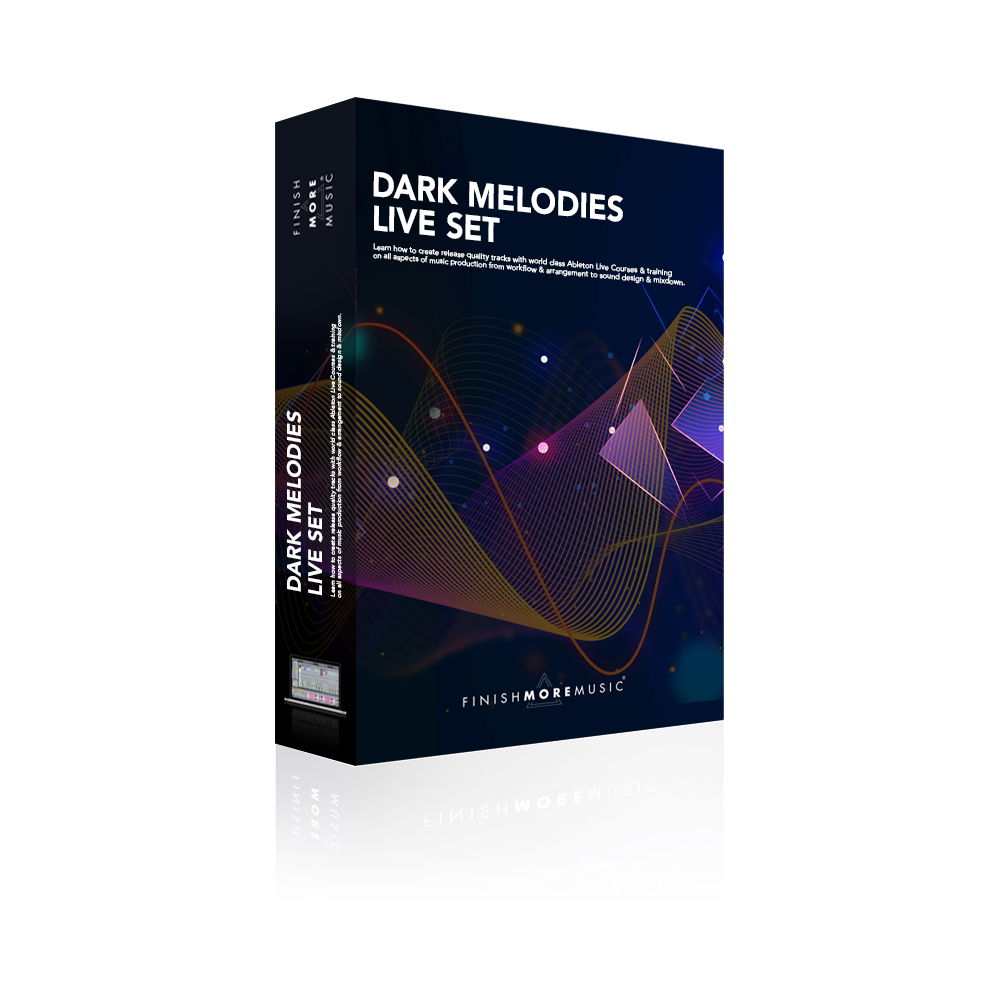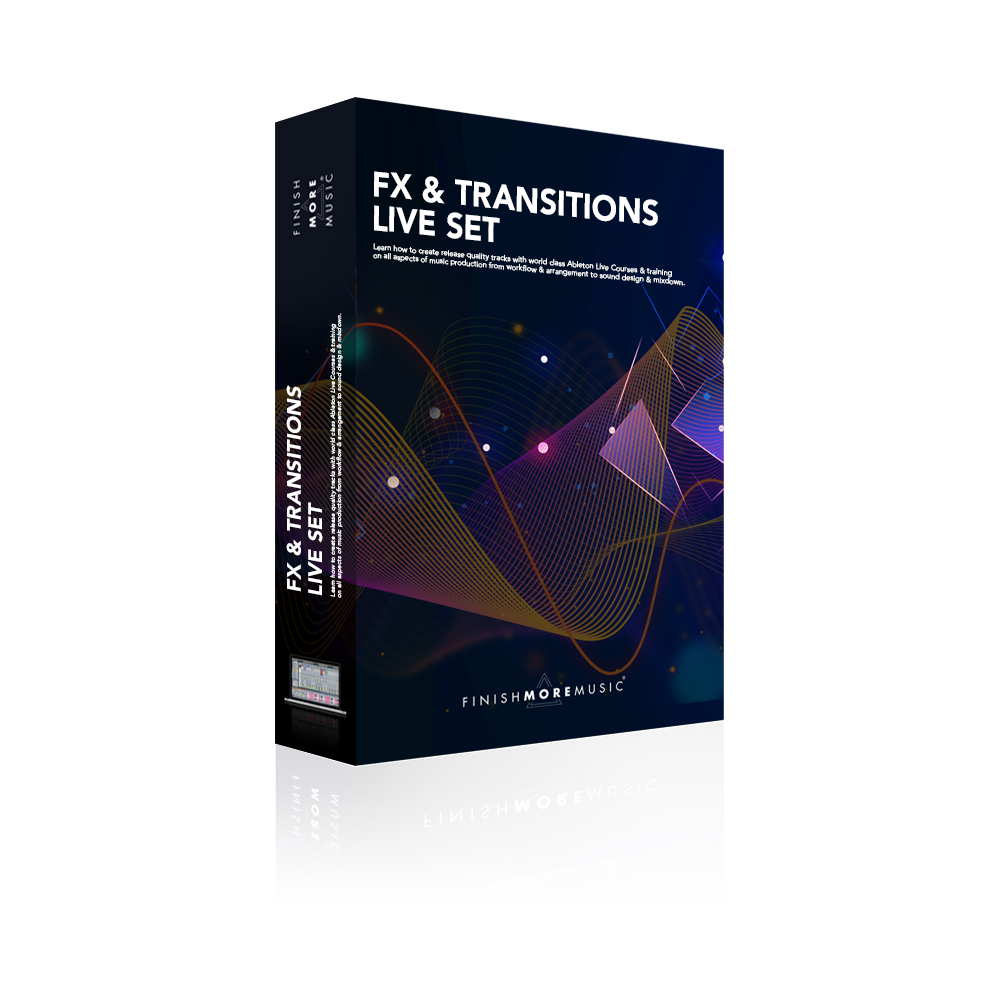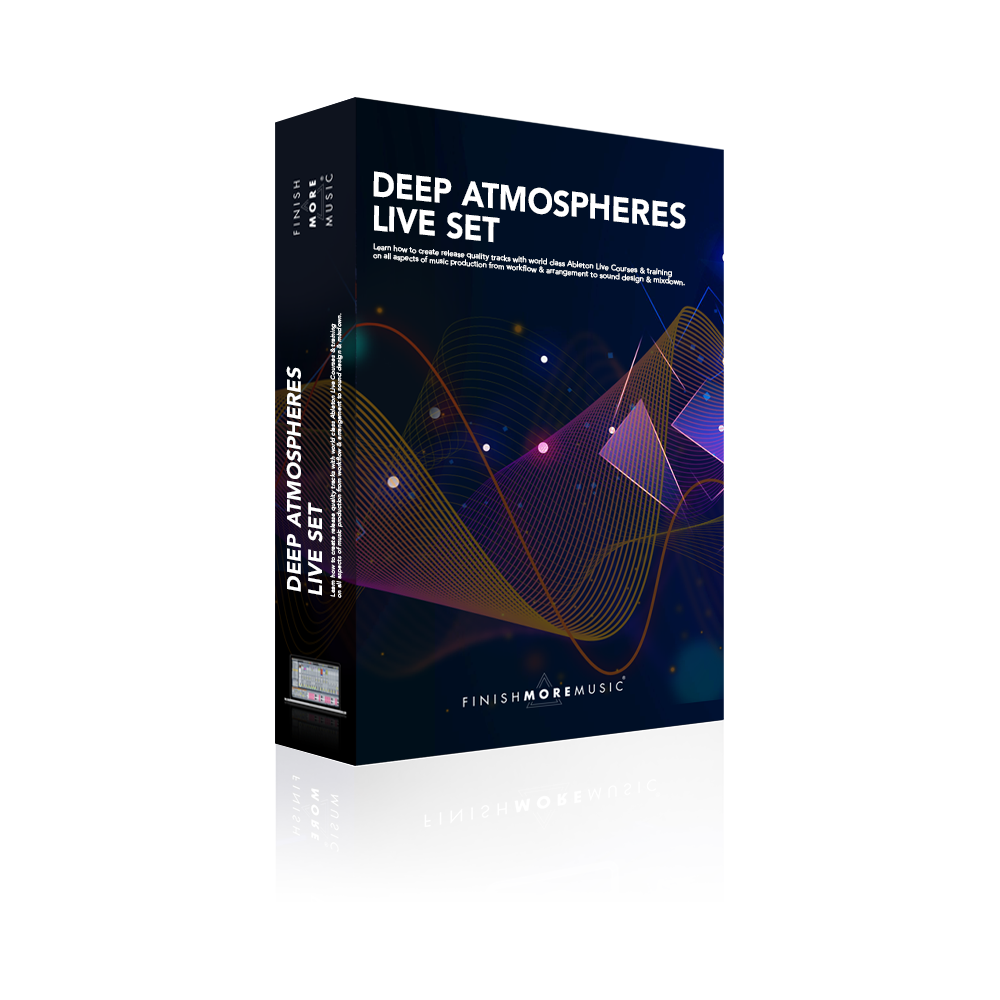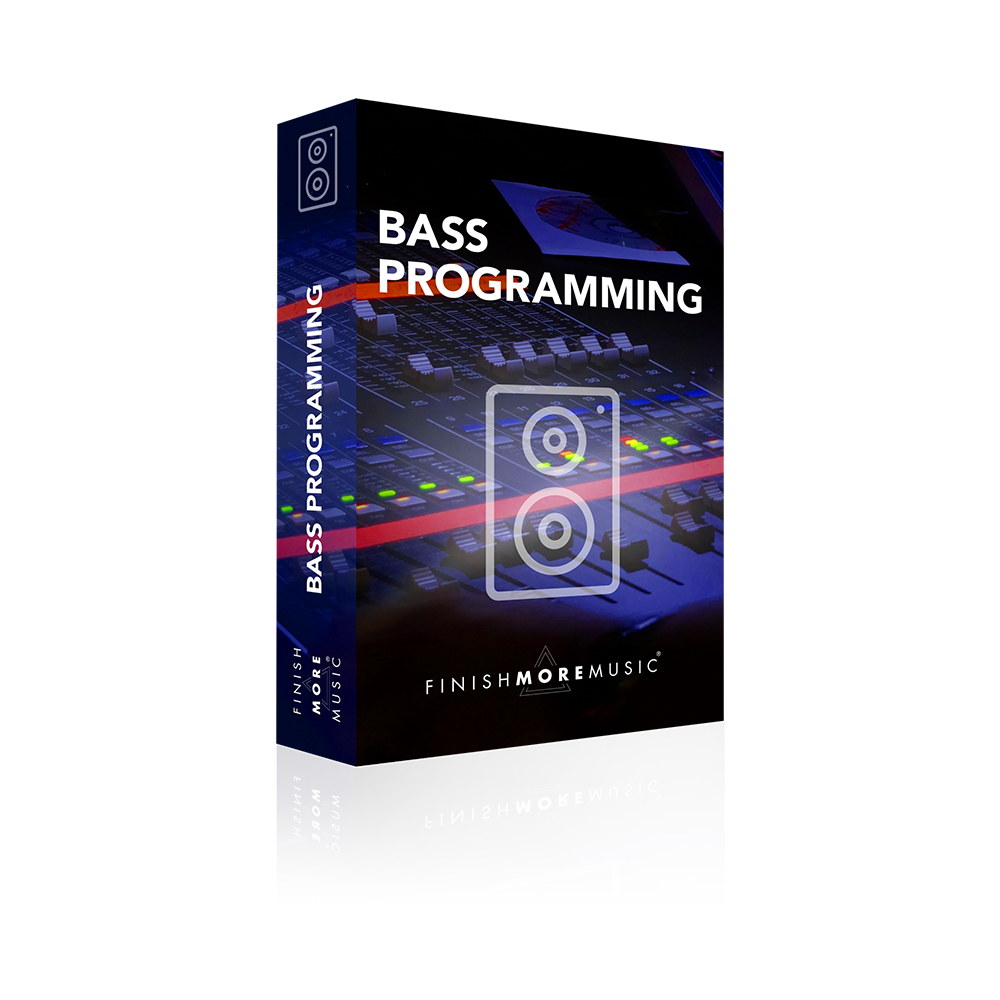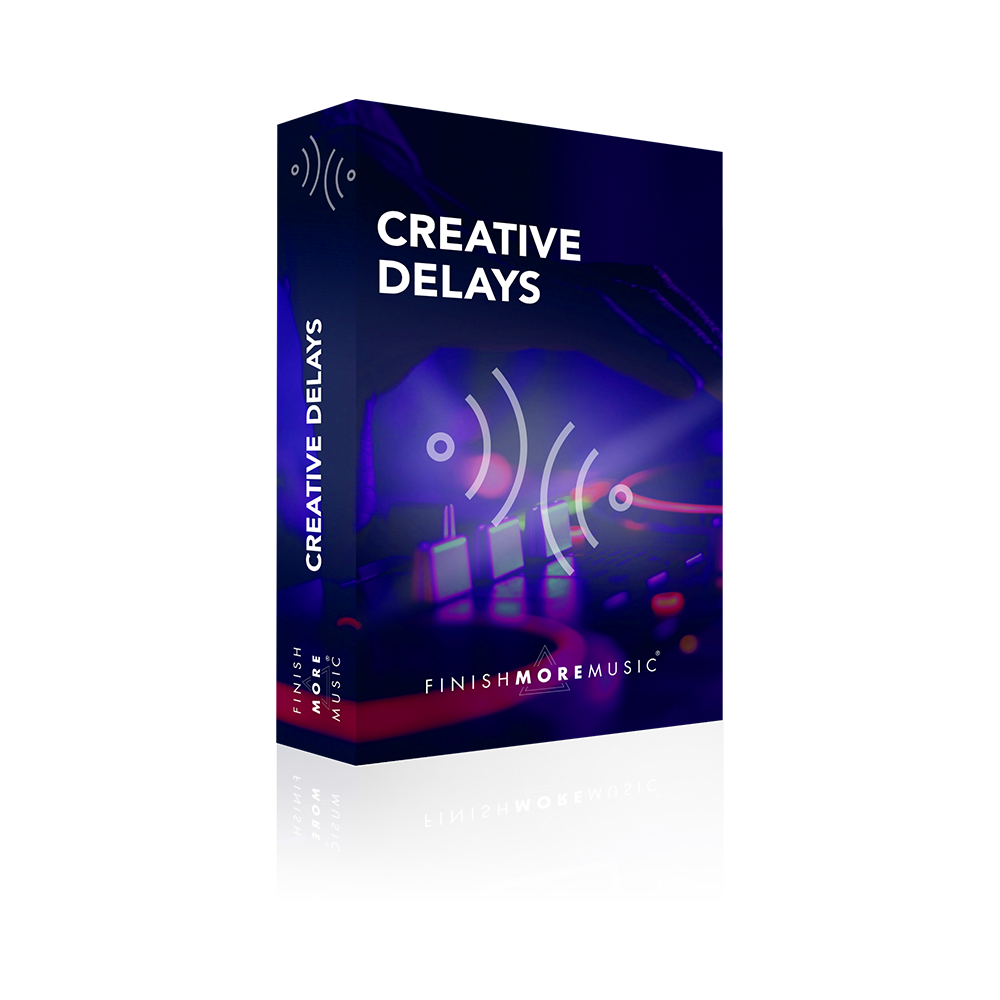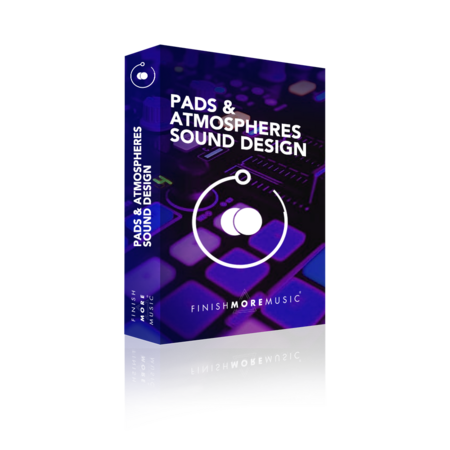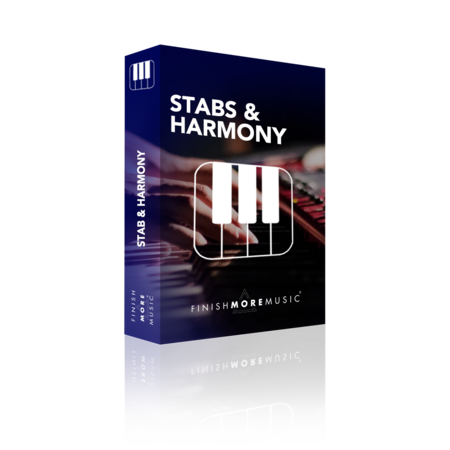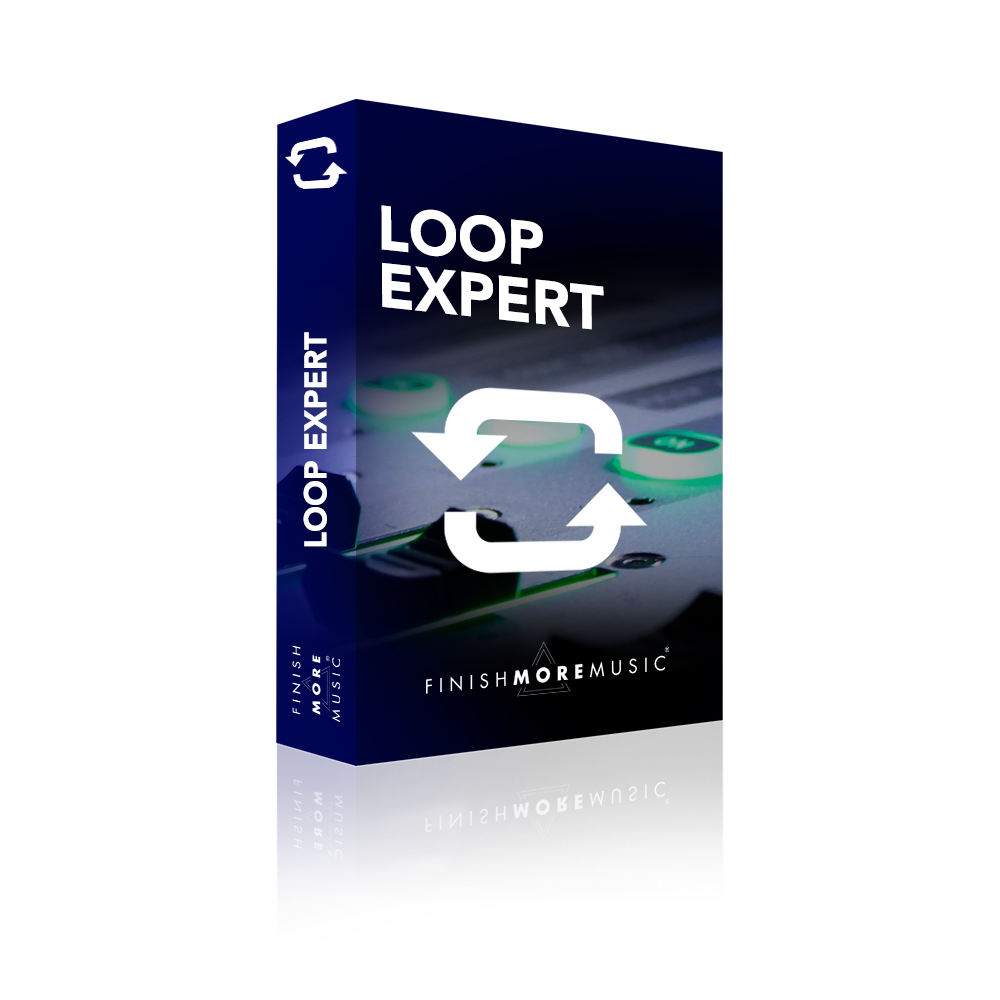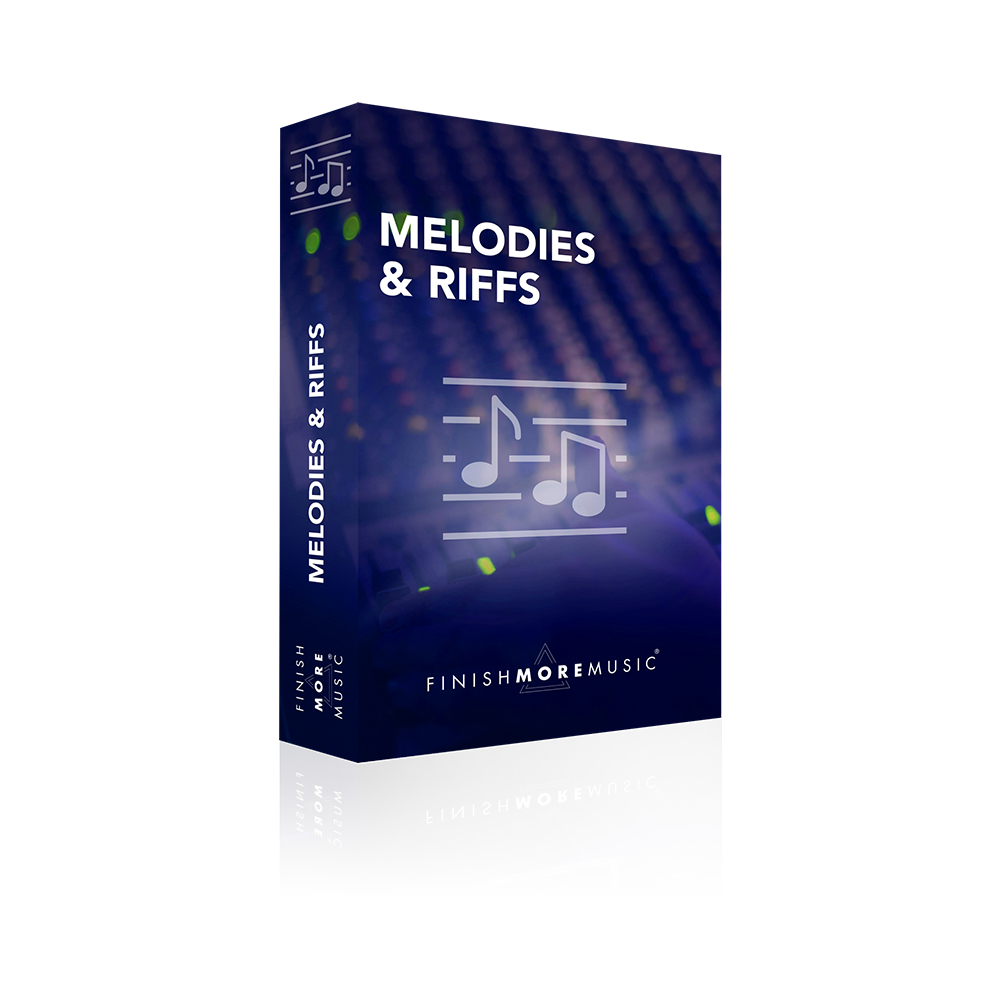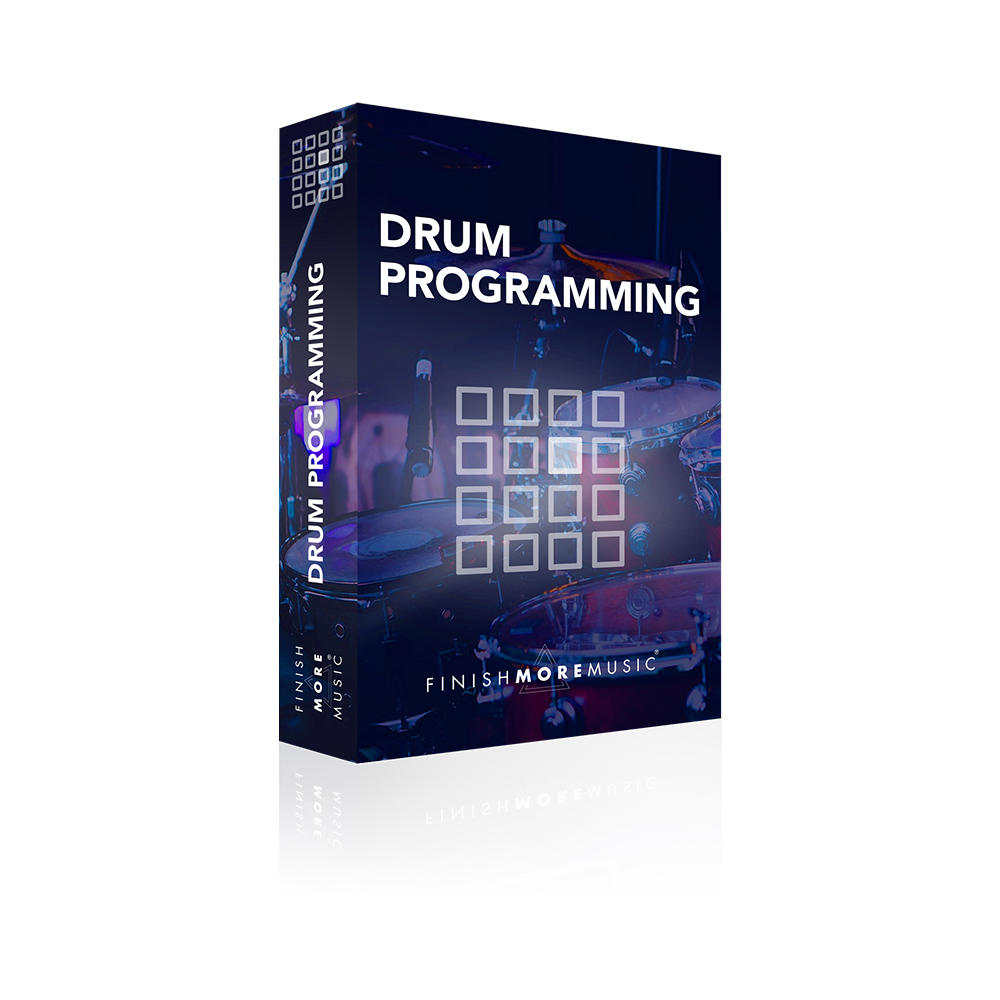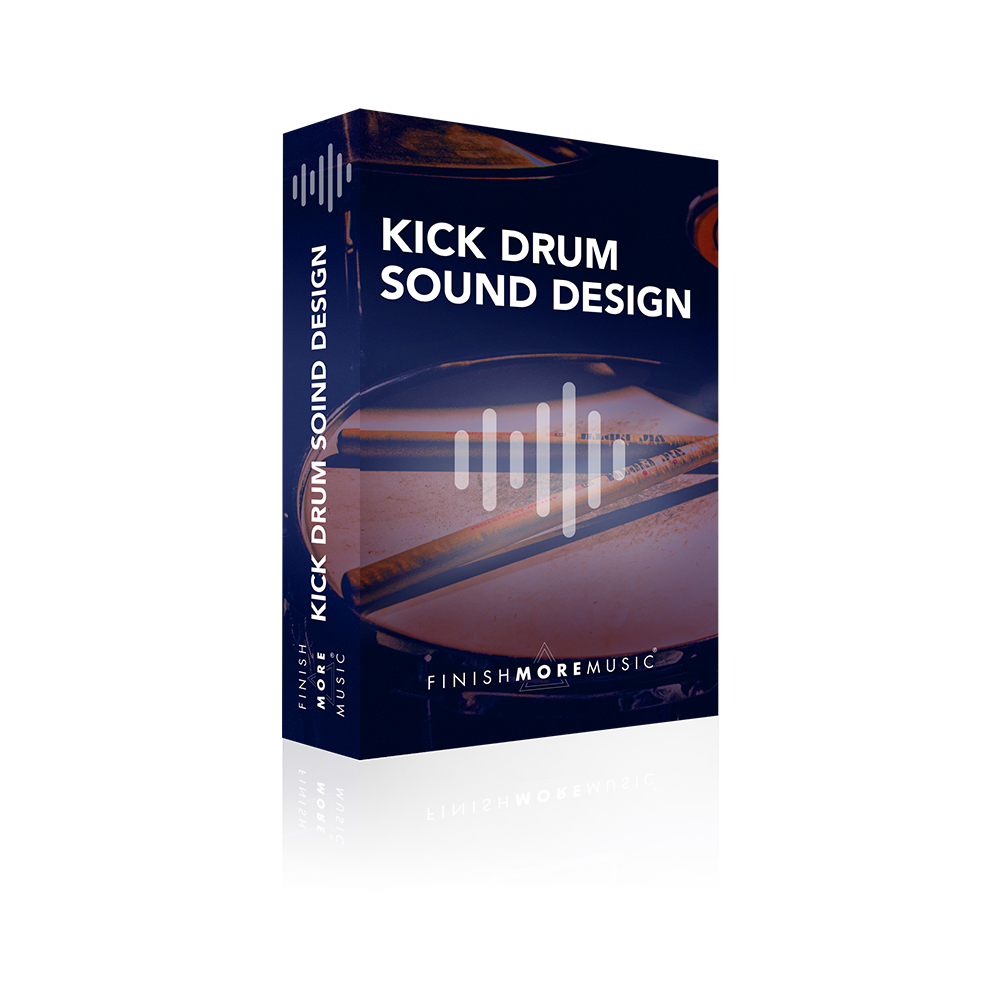Keith Mills:
Hi, I’m Keith Mills and this is episode number 69 of The Finish More Music Podcast and today I’ve got a huge superstar of underground music in the hot seat for you. In this episode, we’re joined by Dubfire. Ali is a Grammy Award-winning recording artist, performer, DJ, and will already go down as an absolute techno legend. He saw huge global success as one half of Deep Dish, and then incredibly went on to hit the same heights within the underground dance scene under his new moniker Dubfire. I’ve been super, super excited to bring you this episode because Ali is someone who thinks very deeply about his music as an art form. Boundaries he wants to break, what he wants to say, the new territory he wants to explore and the connections that he wants to make with his audience in live performance.
Keith Mills:
He recently blew away the members of my Finish More Music community with an absolutely incredible master class with his engineer Matt and I’m confident you are going to leave this episode feeling super inspired and itching to get into the studio yourself. So let’s get stuck in. This is The Finish More Music Podcast. A show for underground dance music producers who want to finish more and better music, and to share it with the world. My name’s Keith Mills and every week we’ll dive into the mindset and creative strategies that will help you to move further and faster along your music production journey.
Keith Mills:
Hello? And thank you for joining me once again for another episode of the Finish More Music Podcast. So massively, massively excited for this episode. I’m joined by one of the very, very best DJs on the circuit, incredible producer. Won a number of different accolades. Runs a forward thinking label. Encourages so, so many of the up and coming generation to step into the best version of themselves to pursue music. So forward thinking it is none other than Dubfire. Ali welcome to the show. Thank you very much for joining me. How are you?
Dubfire:
I’m good. Thank you Keith. Nice to see you again.
Keith Mills:
Yeah, totally. Totally. So off the back of sort of the Finish More Music master class that you did that blew up. I mean the inspiration kind of flew through the community, which was amazing. It’s been a little while since then and the world’s upside down. I know you’re like a massively motivated, really active person in terms of your music and so much of the things that you do in your life. What have you been doing to fill your time in this kind of the new normal at the moment?
Dubfire:
I mean, I think like everyone and especially on the weekly live chat that I do with Truncate, Chris Liebing, Drumcell and Radio Slave. We tend to just talk about our emotions and feelings not only about what’s happening in our surroundings and politically, but also reflecting on our industry. Like where we’ve come from. You know, exploring our individual roots. Having guests on the show that we’re able to take kind of a journey with from those early days of dance music to kind of become re-inspired again. Because it’s hard to maintain inspiration and positivity and hope for the future of our industry when we’re kind of all stuck at home wondering when things are going to get kick started again. You know, just under a general cloud of uncertainty. So that’s been a bit of a group therapy session I guess, that we all crave and we like to have guests on at times and other times we’d like to just kind of discuss what’s happening in our individual lives and in our industry with one another. So there’s a lot of conversations that happen.
Dubfire:
During the chat there’s a lot of conversations that we have in a group chat that we maintain on a daily basis. I’ve been back into the studio with my engineer, Matt. Just trying to finish up some projects namely one with Cosh. A collaboration with my good friend Cosh, which we finally wrapped up about, I think it was Friday and Cosh and I both decided because we’d been listening to it constantly for the last three months, I would say three, four months that we would give it some space. We both feel like we kind of achieved sonically what we had set out to.
Dubfire:
Both of our individual identities are represented in the tracks and we wanted to give it some space and then come back to it to see if it’s still exciting to us and if it is then we’ll kind of go on to the next steps of plotting its release and then there was a remix for Dense and Pika that I was working on for the second time. This might be interesting for your listeners that… You know, the guys asked me to remix something from their new album and I did it once, but I wasn’t 100% happy with it. I sent it to them. I told them that I’m not a hundred percent happy with it and that they wouldn’t hurt my feelings if they were feeling the same way and they were feeling the same way. So I’m like, “Great. You know, I’ll give it another shot.”
Dubfire:
And I did another remix and this one took a slightly different and faster approach and in the end I ended up using less and less of the original parts and when I finally listened to what I had finished, it was so far removed from the original that I just decided that perhaps nothing is going to really happen idealize with me trying to remix the song. So I was going to email the guys today funny enough, to tell them that and that I’m happy to explore remixing something else, but sometimes that’s how it goes you know. The thing is to give it a shot. Sometimes it’s just not going to work out no matter how many times you take a crack at it and understanding that that’s always going to be a part of the creative process is something that you should make peace with because it’s going to be right there alongside you as you evolve from a beginner and a novice to professional musician.
Keith Mills:
Yeah. That is really fascinating and actually I love the way you’ve put that to be at peace with it, because I think there is an allusion that perhaps once I’ve learned all the gear, once I’ve learned all the process, once I’ve learned all of this, it will always be plain sailing and certainly to look at someone like you and you know, all the things that you’ve achieved and all the remix work you’ve done. All the original work, spanning to totally different genres, obviously Deep Dish then going into your solo moniker as Dubfire and to look and think, “Well, you must go into the studio and almost click your fingers and a piece of music comes out the other side.” And I think it’s very empowering to realize that whilst of course you’ve gotten better in so many different ways, one of the big secrets is actually the mindset of making peace with the creative process.
Dubfire:
Correct. Yeah. I think artists tend to try and frame what they do in a very glossy manner because we don’t necessarily… At times I think we want people to look behind the curtain and to see all the blood, sweat, and tears that go into the creative process and the finished result, but generally artists have always wanted to maintain that kind of cloud of mystery around their workflow and especially if they do something that becomes like really timeless and a classic and journalists write about it for years and it gets dissected. You know, most people don’t realize that we struggle with the same things.
Dubfire:
It’s something we discussed on the Finished More Music chat that, people don’t realize that we also struggle with the same things that the average person struggles with and different artists have different proficiency levels whether it’s engineering skills, technical skills, or knowing how to play an instrument. You know, someone like James Blake can probably sit down at the piano and he’s got an amazing voice. That’s a fact, and he’s got great skills and he’s got a unique perspective on piano and voice performance. So he can probably make it feel and look effortless to anybody watching, but he’s probably also struggling to create and retain a certain sense of identity, unique identity and a lot of those struggles can be technical struggles or they can be kind of things that are just kind of swirling around in your brain that are hard to articulate or hard to express to somebody who wants a window into your soul. The soul of an artist.
Keith Mills:
Yeah, for sure. I mean, I was talking to Matt Benjamin, Bushwacka! and he was talking to this as well. He’s like super profession, studied percussion to a really high level and he was talking a little bit like what you’re talking about, where he was reaching the point of, you know am I still relevant? Is my… What do I need to do with my sound? And so there were a whole world of different concerns and even as you’re going along the journey from starting out as a creative, and there might be a lot of, am I good enough? Can I do this? And comparing yourself to other people. Every step of the way from then going out into the public and the bigger the profile you become and the longer you’ve been in it, trying to be different, there’s so many different kind of things that come at it. What… Well, how do you think about music? What’s kind of a strategy that if you have these things creeping in that you employ? How do you help yourself or do people help you in order to sort of get around or overcome these things and not let them in be too intrusive into your creative process?
Dubfire:
I think for me, I always have to remember why I’m an artist. I just fell in love with music, musicianship, the technology behind it, the different genres of music, especially alternative music. For me it’s always been the discovery of new music and new artists that kept me inspired all these years and I don’t think that’s changed really. I was just speaking with Heidi the other day. I think I posted on my Instagram story that I was really into this group called Div, D-I-V and then we got to talking and I found out, and I I’ve known her for years, but I found out that she’s been posting like an album that she’s in love with once a week on her Insta story and you know, just we had a general chat about all these incredible new bands that either I didn’t know about, or I was turning her onto and vice versa and that’s really at the heart I think of who I am as an inspired artist. For me the inspiration comes from being inspired by other artists.
Dubfire:
I don’t think that has ever changed and that’s kind of what has kept that internal flame burning as brightly as it has all these years. It’s that it’s seeking new ways of expressing oneself musically and sometimes you find it in a band called Div. Sometimes there’s another band called [inaudible 00:13:51]. There may be amazing techno artists who are doing something really interesting with the production process and sonically how they’re conveying their ideas, but it’s that constant need and want of exposing myself to like as much music as possible. Somehow that gets filtered through the system and the ideas trigger original ideas in me. You know, those production ideas that I’m listening to. Because we musicians, I think we kind of… You know, if you’re like an art gallery curator or someone who collects art, you can probably dissect a piece of art a lot better than the average person would be. You’ll see things that the average person probably wouldn’t, and you’ll see references to other artists in the past and maybe in the future… Oh sorry, in the present and that’s the same way I think with musicians. It’s like when we hear a piece of music, yeah, we’re listening to it, but we’re also kind of dissecting it whether we’re trying to or not.
Dubfire:
You know, we’re listening to the groove, we’re listening to how things are layered, how many hooks there are. We’re listening to how loud or how quiet the vocals are or how in your face that the drums are, what kind of drum programming, Oh, I wonder whether it’s samples or drum machine, or what scene sound that you… So there’s so many different variables that are constantly without us being conscious of it and also being conscious of it, especially when you’re talking about it with another artist, you’re dissecting all of that and everything that you dissect serves as some sort of trigger that becomes an inspired trigger when you sit down to make music.
Keith Mills:
So in many respects, you’re I guess, what we call feeding the muse. You’re constantly searching for new things and taking bits and pieces from other tracks. It’s funny when you talk about the sort of subconscious and sometimes consciously dissecting music, it’s quite interesting. So I think it can get in the way sometimes as well, or certainly it can for me when I just want to listen to a piece of music. I think particularly anybody who’s ever DJ-ed or started to practice DJ and will have had the experience of how now going to a nightclub or a festival is quite different because you’re not just in the music, you’re often zoned into it what’s the DJ doing? And all of that, which is a… I enjoy it. I enjoy that sort of deeper level of learning for sure. I remember as well that you said another thing that you do is you listen to documentaries and things. Is that right?
Dubfire:
Yeah. I try to watch a lot of music documentaries. The last one being, I re watched it actually, I’ve seen it maybe four times already, but every time I watch it, I’m reminded by the sheer artistry of musicians and I… Especially with someone like Nick Cave. I watched Nick Cave’s documentary for the fourth time. 20,000 Days On Earth. He’s got a few documentaries that are just… I would recommend everyone to check out, but he’s so articulate in describing his creative process and… You know, and I don’t know if people like Nick Cave or other artists, if they… Just going back to what I was saying before about what works for me and what works for other artists, friends of mine is the constant exposure to new music, but then there’s… The flip side to that is there’s artists out there who prefer to kind of live and work in a bubble, in a vacuum and they don’t want those outside influences to creep in, especially if early in their career, they become identified with a very unique sound.
Dubfire:
You know those artists become very protective of that and they feel like if they expose themselves to other styles of music that they become fans of, it’ll kind of filter down into what they’re doing and it’ll influence it maybe in the wrong ways. So I think you have to realize… Each person has to realize what works for them. You know, we’re all unique individuals and there’s no kind of a one size fits all creative workflow blueprint for everyone. It’s a… You have to like try to understand who you are as an artist, what turns you on and how you want to express yourself and whether you need constant outside stimulus from other styles of music or none at all.
Keith Mills:
Sure. I mean, I guess you sort of be the flip side of that in many respects because you’ve reinvented yourself, you’re seeking new whether it be advancements in technology, different directions to take your music and I think it was one of the things you mentioned about when you decided to pursue your solo career as Dubfire, was that you felt that Deep Dish… It was coming to the end of its creative cycle, I think was the term you used, which I thought was a lovely way of putting it. How do you know when you feel that you’re coming to the end of a creative cycle in anything you’re doing and it’s time to explore new territory?
Dubfire:
Well, it depends on the situation that you’re in. I was in a situation where I felt creatively stifled. Like I maybe had ideas that I wanted to explore within the framework of this partnership, but because we didn’t see eye to eye on where we wanted to take Deep Dish sonically and it was a constant battle to win the argument of which kick is the better kick or which had to use, or whether to use a hat at all or which vocalist I prefer and which he prefers. You know I think in my situation specifically, I just felt stifled. I felt like maybe I could maintain if that partnership stayed positive. If there was a lot of wiggle room to go off into weird tensions and explore different things without feeling like you had to kind of make the team happy and do things for the wrong reasons, whether they were to try to get into the charts or to try to, I don’t know, maintain a more commercially accessible sound. I don’t… It was probably a combination of all those different things that drove a wedge between us and then that just became bigger and bigger until we were pretty far apart and it just made sense to kind of go our separate ways.
Dubfire:
So for me, it was like the constant feeling that I had to compromise that I couldn’t fully explore everything that I wanted to. That I was unhappy in a situation that I dreamed of being in which was to be a successful recording artist and have a successful DJ career. You know, I woke up not just one day, I woke up many days and I was just unhappy with where I was, even though we were having some of the best success that we’ve ever had in our entire career. So for me, it was a kind of… I mean, I knew what had to be done.
Dubfire:
It took a long time to actually work up the nerve to do it, but I think for anyone that finds themselves in that position and I’ve known many over the years. You know, some kind of just suck it up and they realized that all the stuff in the periphery that goes along with that kind of success, they prefer to keep that going at the risk of losing their creative identity and other people feel like, well, their creative identity is the reason why all those other things are possible. So if that’s stifled then all that other stuff is going to go away and it’s just going to chip away at who you are and what you want to represent and what’s the point of living life if you’re not going to be… And what’s the point of doing something that you love if you’re not in love with it. So for me it was pretty obvious what needed to be done.
Keith Mills:
Yeah. It sounds… The way you’re describing it is a very bold move. It must have been quite a challenging time for you making… You knew you wanted to make a step, but it was a big leap into the unknown basically to pursue something that it’s still art, but it was a very different sound. You went down a whole kind of new road. How did you make the transition? What was that journey like? Was it a very bumpy road to start with? Did it go well?
Dubfire:
You know, it was really scary. I was… You know, I was still… The same promoters that were booking… You know, as a DJ, the same promoters that were booking Deep Dish, they obviously wanted to continue booking us separately, but not all. But I would say maybe more than half of all those promoters I knew and I’d known for a long time that they weren’t the right promoters for me in terms of where I wanted to take my career musically. I had to work with a whole range of promoters that I hadn’t been working with or that I maybe worked with very early in our career because we started as like an underground, deep house techno act, and it just evolved into something completely different. So I knew that I would be taking many steps back financially. I would be taking… I would be giving up a lot of opportunities. I’d be working less, but I knew that… You know, I knew where I wanted to go. You have to be able to see across the finish line. You have to have some sort of an idea.
Dubfire:
It’s okay to not have an idea at times, but you need to try and visualize where you want to end up career wise or with whatever it is you’re trying to achieve and then think about… It doesn’t have to be so methodical, but you should think about what it’s going to take to get there. How long do you think it’s… You know, how long do you want to give it before you can achieve that. 10 years, five years, two years because that’ll determine the level of sacrifice and hard work that’s going to go into it. Obviously I wanted acceptance from the techno community from day one, but I knew that wasn’t going to happen. I had to prove myself despite all the success and the Grammy Award and all that stuff that I had achieved in Deep Dish.
Dubfire:
So for me, it was kind like going back to the roots, back to the reasons why I started. It took a lot of visits to Ibiza, checking other DJs, being inspired by what was happening around the time with like minimal techno. It was a lot of different things that I… You know, I was kind of like sponge again. You know, I’d always been sponged like in my constant need to absorb all the great music around me and all the great artists, but I needed to be that sponge again and I knew that there was a certain sound in my head that I wasn’t hearing anybody else represent and that just turned into a lot of studio sessions with Matt and I knew that it can’t be just one or two things. It’s got to be like a concerted effort to constantly reinvent myself from one remix or one production after another and I remember telling Matt that, I said, “Look, we need to just be relentless with our work ethic and I need to try to get as much incredible music out there and translate all these crazy ideas in my head as possible.” And Matt helped me kind of realize that.
Dubfire:
You know for a while we were using… We had this white noise kind of crash that a lot of people associated my music with that was funny because we didn’t set out to do that, but like I recalled all the times where I was on the dance floor and you had like liquid nitrogen blast and how amazing that sounded on top of the music. I’m like, “Wow, I wonder if we can kind of create this white noise crash, could we make people feel the same way? You know, there’s a lot of venues that don’t have that. So can we replicate that somehow?” And then other ideas in minimal music, minimal techno music that I thought weren’t fully fleshed out. I wanted to like take ownership of that and create… And give it my own spin.
Keith Mills:
Where in that journey? I kind of… I don’t want to jump around too much because I’m really keen to understand what your day in the life of when you were doing this intense studio stuff was? But where in that timeline did Roadkill come into proceedings? Because for me that’s an iconic track and it was a very different track and it was a track that transcended genres as well that could be dropped into most sets and it would go off and yet it’s still had a very unique techno identity. Where did that come in the timeline and how did that come about?
Dubfire:
Yeah, I think one of the first things I produced was the I Feel Speed track, which was me singing on it and it was cover of a love and rockets song and when… You know, with the last Deep dish album, we were exploring a lot of… You know, we exploring this hybrid of like alternative rock and dance music and trying to be kind of like… You know, I guess like The Chemical Brothers and groups like that. We were just trying to inject a bit of rock and roll into electronic music and when I first went solo I thought I wanted to pursue that and go in a less… You know, a darker direction. Less poppy and less commercial than Deep Dish and so the idea was to continue to explore this rock dance hybrid.
Dubfire:
So I could have conceivably gone into kind of an Erol Alkan’s Justice left field direction, [Indy 00:30:55], direction. I think I wanted to be Indy, but I also loved what was happening in techno. That was very inspiring to me and then RibCage and Roadkill were the two other tracks that I produced just after I Feel Speed and when RibCage got signed as the first release on Loco Dice’s label and Roadkill started to get played by people as diverse as Testo and Richie Hawtin and everyone in between, I knew I was onto a good thing there. So then it became… Well you know, we’re getting a lot of like great feedback from where we’re going musically with this stuff.
Dubfire:
So why don’t we leave the vocal indie kind of thing to the side and go more in that direction. So it was that feedback that we were getting not just from our colleagues in the industry and I had a lot of friends by that point, having achieved the success that Deep Dish had and having come from humble beginnings, where I was friends with a lot of the guys not just on the techno scene and sort of the EDM scene. When we started… When I started to get recognized by diverse group of artists, I knew I was going in the right direction and it just became a question of like continuing to explore things to see if I could get everybody playing it as opposed to just like the Richie Hawtin’s and the Chris Liebing’s.
Keith Mills:
Sure. I think every everyone was playing. I mean, I remember talking to you about it. It was a track that when I was DJs to play it all the time and the place went off wherever it was, wherever it was, it was that tune. It was just huge and I know we’re jumping back a bit, but can you remember like how that came about, because it is one of those tunes and that is it… Was there a load of inspiration or it just flew out of your mind? It was one of those tracks. Can you remember the creation of that?
Dubfire:
Yeah. You know, I’m not going to tell you what samples we used, but there’s some cleverly used samples in there that people wouldn’t expect mainly with the drums. There’s one drum loop in particular that nobody would ever figure out where that’s from, but it’s a very old record, a jazz record but it just sounded techie when we ended up pushing it through all the crazy processing that we were working with at the time. I guess for me, it was just sitting down and obviously I had my struggles initially with the creative process and trying to figure out and articulate to Matt, my engineer because he’d been used to working and he comes from live music kind of background. He was used to working a certain way and I was going in this new direction and I was trying to act like I knew where I was going and I knew what I was doing, but I had no idea. But you know, I’m the captain and I’ve got to like give everybody on my team the impression that I know what I’m doing and I know where I’m going.
Keith Mills:
I’m in control. Yeah.
Dubfire:
And I’m in control of where we’re headed. So don’t ask questions, just follow me, you know. So it’s like… It’s a scary thing because you don’t want to let anyone down including yourself. So I guess suffice it to say that I didn’t know what I was doing. I just knew that whatever we were doing had to be different. So there was a lot of banging our heads against the wall when maybe we had done something that was great, but it wasn’t innovative enough. You know, that it wasn’t like pushing things forward and for me, I think that ethos of like embracing new technology and new production techniques. You know, it was all about like pushing the envelope because maybe instinctively I knew that I would be noticed if I did that at the very least. If other producers whose work I respected would listen to my stuff maybe they weren’t into it, but they would think, “Oh, wow. I wonder how he achieved those frequencies or that groove or how did he create that synth sound or that or wow, it’s so hooky, you know?” So it was all these different things that were at play.
Keith Mills:
Right. Sure. And you mentioned that the… You know, you took a really strong work ethic into that period. What would a day in the life of you back then when you’ve come back from Ibiza and that you’ve soaked everything in and you’d like going in the studio with Matt and it’s like “Right. Man on a mission.” What would that have been like being… You know, looking over your shoulder back then?
Dubfire:
It was a lot of arguments with my girlfriend at the time because you know, like when you’re that motivated, time kind of becomes an irrelevant idea. I mean, we were working around the clock. There wasn’t… You know, as you get older maybe you start a family whatever. You start to carve out a particular amount of time per day that you’re going to give yourself to work on music, do music related things and you start working more trivial adult things into your daily life, but back then I was so motivated by this. Going into uncharted territory on my own without Sharam, that I knew I had to work twice as hard as I was when I was in Deep Dish, but I was motivated. You know that was the difference. It wasn’t like I was dreading like having to work around the clock in the way that we were working.
Dubfire:
So there was a lot of… Like a lot of long hours. A lot of late night sessions. I used to prefer to work overnight back then, but by the end of that 10 year stretch, I just felt like… You know, and I started to kind of shift things around and work more during the day and I felt like I had more mental space and mental energy if I got a good night’s rest and woke up early and tackled it during daytime hours. So I think it’s just realizing like putting yourself in the right situation where those creative ideas are able to get tapped into and captured. For some people it’s at night when you’re tired, the phone’s not ringing, there’s very few people awake, you’re being left alone and for other people it’s having a daily regimented schedule. Kind of a nine to five approach to music making.
Keith Mills:
Yeah. I’m a very much a first thing in the morning person, which is going into the everyone’s still asleep thing. I find there’s something magical about waking up and my studio after I leave the house just across the garden to come in here, but it’s silence. No one else is about. No one else is up. It feels like there’s the edge of the day and that feels like a nice time space Oasis to step into, to create or to work on whatever. Now in terms of you exploring new directions and things with your art, you’ve pushed the envelope in so many different ways Deep Dish, now is Dubfire, and you’ve done everything from your hybrid shows to different even directions in techno, the remixed and that sort of that I’ve… You know, you’ve showed sort of broke down in the master class in FMM which again was anything but minimal techno.
Keith Mills:
It was this beautiful remix of an ambient piece. You’ve talked about sort of adding guitars, pianos, your voice and everything like that. Right now what are your thoughts on new artistic territory for you to explore? Is there something else at the moment that you’re looking to say?
Dubfire:
Yeah. I mean… You know, my brain is Kind of going in two directions. One, there’s been a lot of like electronic body music that’s been championed by people like… You know, artists like Ancient Methods that I’ve been heavily into and that’s kind of taking me back to my new wave and EBM kind of era, loving bands like Front-242 and wanting… You know, I’d always wanted to I think, make that kind of music and that kind of music all of a sudden is relevant again and being updated in innovative new ways by new artists, who’ve also maybe rediscovered that genre of music that was kind of forgotten for a long time. You know, industrial music. I was heavily into industrial music and there’s a lot of like kind of techno with industrial soundscapes and ideas and then there’s also like a lot of really cool mid to down temple kind of techie Indy stuff that I’ve been listening to a lot lately that also has inspired me to continue working with like alternative styles and electronic dance music and singing more. That’s something I want to do more as well.
Dubfire:
It’s gotten easier to just kind of lay down your own voice and process it very quickly and mimic the voices of all those great singers that you worshiped when you were trying to do it by singing in the shower. Yeah, so there’s… Yeah, there’s these two kind of creative directions that I’m exploring right now. Something that’s a bit like more industrial, harder edge, and then something that’s a bit more like shoe gaze for lack of a better expression.
Keith Mills:
And so do you sort of go down those both in parallel? Do you try to merge them? What’s your approach to exploring them both? And then will you typically find that you’re sort of leaning one direction because a bit like you said, when you started out as Dubfire, you had these two parallel ideas and you ended up leaning in one direction. What’s going to be the process of sort of getting stuck into these and exploring them?
Dubfire:
I mean, I like… The more parallels you have the better I think and I find because just when you get stuck or tired of going down one direction you’re also into all this other stuff. So then you can kind of shift mid gear and go and explore a different kind of creative direction and then keep jumping between all the different ones and at some point the influences of all these different creative ideas and sounds that you’re trying to articulate, they start coming together in unique ways, you know. So I don’t like to get, and I typically don’t get like tunnel vision when it comes to whatever it is I’m into and whatever I’m working on.
Dubfire:
I’ll at some point lose interest in it. There’ll be something… You know, some sort of a roadblock or hurdle, whether it’s technical or creative that will stop me in my tracks and then I’ll need to re ignite the flame so to speak and I’ll need new inspiration. So then I’ll just go and explore another idea that we have kind of like on the back burner and then I’ll get tired of that and I’ll jump into something else. So it’s just jumping around really. It’s not like an ideal solution to actually being able to like finish something, whether it’s an album or song, but whatever it takes I guess and sometimes that’s what it takes.
Keith Mills:
It’s interesting, you mentioned the sort of like button up potentially against the technology and that’s something you’re super passionate about. You’ve utilized, you’ve been at the forefront of things. It was interesting because when you were mentioning the white noise crash sounds that you had, I remember back to when I watched you play at Matter at the O2 in London and even then you were… Like you had a really advanced DJ setup. You were very much at the forefront of it and I think you actually had that sound ready to go whenever you wanted. There are huge moments and that was mapped out along with… You know, I think you were playing four different decks and all sorts of stuff was going on. Is there anything new at the moment that is exciting you either in the DJ booth or in the production process, new technology that you’re exploring?
Dubfire:
No. To be honest with you not too many. You know, I pulled out my old Roland Space Echo and I’ve been using that a lot in my DJ set. It’s just the live streams that I’ve been doing. I haven’t really opened the can of worms. I know there’s a lot of incredible new… You know, there’s a company called Black Corporation, which make incredible synths. I think they have one called the Deckard’s Dream that I want to check out. There’s kind of… You know there’s a few pieces of gear that Matt and I are looking at acquiring and exploring, but we just haven’t had the time to be honest with you. I also wanted to kind of look at what I currently have and try to master those things or explore those things further. You know, all the crazy third party. We just got the new V collection from Arturia updated. You know, sound toys are making incredible Plug-Ins. You know, iZotope is another great company making great Plug-Ins.
Keith Mills:
Yeah. You’ve got to go into Iris at all?
Dubfire:
I think we haven’t.
Keith Mills:
They’re sort of spectral synth thing that… Yeah, that’ll blow your mind if you want something new and… Well, it’s not so much new anymore, but it’s quite different to a lot of the things out there and it’s particularly actually, as you were mentioning industrial sounds and things like that could be one that would light you up without wanting to risk sending you down a rabbit hole like we often can when we’re into our tech.
Dubfire:
Yeah. I’ll definitely check it out. They just came out with a new updated version of Stutter edit as well, which was revolutionary when it first came out. It’s like a brainchild of my old friend BT as well. So that’s something I want to explore as well.
Keith Mills:
Sure. And if we got the crystal ball out, any thoughts even might be dreams may be of where the technology might take us next and again, that could be from a live performance side of things. I know you’ve done loads of cutting edge stuff for your hybrid shows in that area or studio maybe dare to dream, even if you’re not sure if it’s coming.
Dubfire:
I’ve always wanted to create some sort of an immersive experience for people, where you have like the artist. You know, I don’t know why we’ve been conditioned to think that like the audience always has to be on one side of the room and the artist on the other, on a stage or a riser. Why not put everyone together and create an immersive experience by… And then having like an LED wall behind the artist? Why not like a projection mapping or LED technology on all four walls and the ceiling and the floor to kind of like create a virtual world and create an immersive sound experience as well? Why can’t we have kind of a surround sound immersive experience running parallel to the visual immersive experience?
Dubfire:
So that’s something that obviously it’s hard to do because you need the right venue and the right technology, and you need promoters who believe in that or you could do it on your own. So it’s something that I’ve always wanted to explore and something that we might get… I might get more serious with in the future for the next kind of incarnation of my live show.
Keith Mills:
Cool. And also in the crystal ball, what about the future of the scene so to speak? I’m particularly interested in what has been maybe not even parallel, but perhaps intertwined or maybe the better word is tangled world of the underground scene and what was the commercial EDM? And I don’t like using the term because it’s always what we used to call our music, but it became the commercial name in many respects for it. How do you see those two working? Do you see there potentially be more of a separation now?
Keith Mills:
Because certainly festivals things kind of got a bit messy with what used to be underground events that everyone was going to very much infiltrated. I’ve spoken to a lot of people whose have their like local clubs that were always underground had their favorite artists and can’t necessarily blame promoters and business owners for going what’s lucrative at the time, but I’m interested to get your take on where you see that going in the future and that the scene as a whole.
Dubfire:
I mean with the shutdown of our industry during this pandemic, it’s served as sort of a reset. You know, you’re going to see unfortunately a lot of casualties as result. A lot of promoters or a lot of venues, a lot of events that won’t return and that’s going to be unfortunate because ultimately like we get booked to play for a promoter or venue. So that’s going to make it difficult, I think for everyone and it’s an industry wide reset, whether you’re in EDM or techno circles, but out of that struggle to return to normal you’ll likely see a return to maybe that pure clubbing experience and what is that? Maybe people are going to tap into why they created this club in the way that they had. Whether after all these years of doing it still makes sense. How can we reinvent ourselves?
Dubfire:
I think a lot of people are also asking one another is how can we reinvent what we’ve grown accustomed to for all these years and how can we reinvent the roots of this music in new and exciting ways? And I think what’s happening and maybe you know on the road to coming back to how things were pre-COVID. We’re going to discover some things about ourselves along the way, and we’re going to have to evolve and adapt into new ways and I think it’s definitely reset the playing field.
Dubfire:
You’re going to see for sure fees come down. You’re going to probably see less… Especially in EDM circles, less production value. You’re probably going to see a more raw and pure clubbing experience, where the initial emphasis may just be in making sure everyone can have a safe clubbing experience and everything else is going to be secondary and it might just be, you know Kerri Chandler said it best with a release he had in the ’90s. A basement, a strobe light, and a feeling. Maybe that will be the way things get going again. You know back to basics and raw and out of that, a new normal will emerge and hopefully a better [inaudible 00:53:37].
Keith Mills:
Is this one of the… Because it is great you’ve got a very positive sort of spin and it’s quite exciting even listening to you talking about the way that you think things might come about. Taking it kind of full circle I guess, in a way back to the very beginning when we started to talk about the DJs and beers, and you were talking about staying optimistic and motivated. Is this one of the things that you’re sort of leaning on is the excitement and the potential positive outcomes that will come out the other side of where we are right now?
Dubfire:
Yeah. I think right now I mean, everyone’s been cooped up for so long and will probably continue to be for another six months or so that anything is better than status quo. I think things will gradually return from a back to basics level and we have to remain positive and hopeful that we’re going to return better than before. We’re going to have to, and we’re going to have to also be… There’s a lot of conversations being had right now about being more socially responsible.
Dubfire:
You know, I think we need to have more balanced lineups in terms of… I mean you already saw that with more and more female artists entering the fray and promoters making sure they’re conscious to book people from both sexes equally. So we need to make sure minorities are included in that. You know like our industry has always been colorblind. A lot of the roots are from black artists and black music, and that needs to be acknowledged and that needs to be supported more so today than ever before. So I think you’re going to see more social responsibility emerge as a result of this, which is a very positive thing that is going to come out of this crisis.
Keith Mills:
Sure. So I want to take a slightly different angle, but still very much on the people front that you’ve just been talking about and that’s just to talk about mentoring a little bit, because I know that you’ve been mentored and that you’ve acted as a mentor and been facilitated a lot of opportunities for up and coming artists. How does that typically come about where you end up mentoring someone and what does the relationship look like?
Dubfire:
I think for me it just feels like I’m paying it forward. You know it feels a natural extension of what I should be doing as an artist having achieved the success that I have and being the age that I’m at. I wouldn’t be where I am today if it wasn’t for people like Danny Tenaglia and Carl Craig and others who mentored me in those early days and I feel a sense of duty to kind of preserve those qualities. To make sure not only other artists see that and do the same but to make sure like our industry is going to be a better industry for the next generation.
Dubfire:
To make sure that the next generation don’t make the same mistakes that we make and I also learned from the new artists. You know it’s not purely a one-sided kind of mentorship situation that’s happening. It’s like everything that I’m communicating is all of the knowledge that I’ve grasped over the years and maybe there are new ways of looking at that and I think anytime I have a conversation with a new artist we’re learning from each other and so it’s a quid-pro-quo kind of thing. It’s very for lack of a better word transaction. It’s a very… You know it’s just nice to have that dialogue from one generation to the next about where we’ve come from, where we are and where it could go. I have my vision, they have theirs and collectively we can come up with new solutions or new ideas and make sure that the industry for that next generation is going to be stronger than ever before.
Keith Mills:
Yeah, sure. So it’s kind of like the mastermind concept when you put two minds together. In fact, even we can use the analogy of the third record. Mixing the two tracks and getting the third record, and that it is exactly the same with… And I find this to be completely true as you’ve mentioned, the meeting of different perspectives and different ideas almost creates a third mind, a whole new thing to explore and the more you do it providing you’re open, you have to come to the table not as the, “I know everything. Get my way or the highway.” But if you’re really open and receptive to listening to everybody and value everyone’s opinion in that relationship, you take a huge amount just from the ” God, I never looked at it like that before.” A totally exciting perspective that somebody’s brought to the table. At the moment do you still share your music with your peers and vice versa? How much feedback do you give on people’s music and they give you at the moment?
Dubfire:
I mean with new artists because I have the outlet for that in my SCI+TECH label, I do that quite regularly. With my own music? Yeah. I still need, and I crave the recognition and the guidance from my peers so. You know, certain people I trust and I talk to regularly I’ll send them bits and pieces of ideas that I’m working on or finished pieces of music and you may not always agree with their perspective, but you respect it and I’ve often felt the same way. If I’m being given advice about something, maybe I just need reassurance that I’m either going in the right direction or the wrong direction. You know, I need a second set of ears and that’s helpful. I think it’s important to, you know.
Dubfire:
Then again, that works for me, there’s other people like I said before, who prefer to live in a vacuum and not have any opinion or outside influence and that keeps their ideas pure and honest. I think I’ve said this before in other interviews and possibly with the last chat that we had is, at the end of the day whatever it is you do, you have to try to be as honest with yourself and with your art as possible and if you can manage that, the rest kind of fall in place quite nicely.
Keith Mills:
You might have just ruined my question here, but I’m going to ask it anyway Ali. Which is… Sort of to wrap things up is what would be your one piece of advice to anybody who’s just starting out on their creative journey? So kind of right at the beginning of things, and maybe it’s something that you could think of if I jumped back to me right at the beginning when I first got into this world, what was the one piece of advice that would have been awesome if I’d have known that?
Dubfire:
I think these days people just need to be more patient and let things. Not try to force anything, just let things continue to take shape until you feel like you’re ready to let everyone be exposed to whatever it is you’re working on. I think these days everybody wants a fast track to success and fame, and maybe they’re… Because dance music culture is so embedded in our social culture these days and you know, kids these days are spending so much time on social media and they have to realize that we only convey what we want you to see. You know behind the scenes everything looks different. So don’t be influenced by what you see and how you see people express themselves on social media, just focus on your art, try to be as honest as you can with it and make sure it’s good enough. Be patient and if it’s meant to be it’ll happen.
Keith Mills:
Yeah. Wonderful. It speaks back to that deep connection that you were talking about with the art and the reason why you love making it and focusing on that as a sort of the spine I guess, of everything that you do. So coming up for you, anything your fans can be looking forward to excited about. You talked about some of the work you’ve been doing in the studio at the top of the show, what’s coming out? Anything that we can get stuck into at any point soon?
Dubfire:
There’s a remix that I did for Kevin de Vries who’s a very amazing up and coming Belgian. I believe he’s Belgian. Belgian artist who lives in Berlin. He did a collaboration with the Ilario Alicante an Italian artist who is a good friend of mine and they have an EP coming out and I did a remix of a song called Segue-2 which I believe comes out on the 24th of this month. Hopefully my Cosh collaboration will be out at some point this summer and I am happy to say, I don’t have any other commitments and I’ve already started working on like this kind of left field Indie album project that I want to represent the work that I’ve made during this kind of shutdown period.
Dubfire:
I think a lot of artists because it’s been more than three months now we’re thinking, okay, something really amazing artistically has to come out of this shutdown. We have the time so let’s see how creative we can get and let’s see if we can come out with an iconic piece of music whether it’s an album or a few singles or whatever that really represent the struggles that we’ve faced during this COVID pandemic situation. So that’s a-
Keith Mills:
Brilliant. It’s like another positive take on it as well. I love it. It’s really good. It’s been amazing talking to you on this front because there’s is such a kind of positive energy of what might come out the other side of this, which has been wonderful and thank you hugely for joining me, I was very excited about the interview. I mentioned this before to you that because I noticed such a strong what I would call spiritual connection to your art and to me that means the whole why you’re doing it, why you’re invested in it, the role that you play, what you want to say, what you want to put out there, the way that you want to experience new things, inspirations. I was like dying to dig into this and get much deeper on the subjects with you and it’s been absolutely fascinating and awesome. I can’t wait for the show to go out. So thank you very much.
Dubfire:
My pleasure. Thanks for having me Keith.
Keith Mills:
Ali you’re an absolute legend. Thanks very much buddy. Take care and I want to get you back on the show soon as well.
Dubfire:
For sure.
Keith Mills:
Hopefully when you’re back out DJ-ing we can somehow sneak an episode in somewhere. I know that would be very difficult.
Dubfire:
Definitely. Anytime. Thank you.
Keith Mills:
All the best. Take care. Thank you.
Dubfire:
Bye.
Keith Mills:
So what do you think about that then? I always love talking to Ali about music because he’s got such an intentional, such a spiritual approach to his art and I always leave every conversation feeling really lit up really inspired. I find it absolutely fascinating in a way so insightful, but how do you feel right now? What take-aways have you had? And most importantly, what are you going to take forward into your music practice? Let me know. Hit me up Instagram @iamkeithmills. I really want to hear from you about this one. Let’s chew the fat on it. I promise to read it. I promise to get back to you and you can grab the full show notes over at finishmoremusic.com/068. Be sure to hit subscribe as well if you haven’t already, you don’t want to miss a beat on the FMM podcast. Until next time, take care and happy music making.
Keith Mills:
If you’re serious about getting your music heard and climbing the ladder as a music producer, one of the skills you absolutely must master is remixing. That’s why I’ve put together a brand new completely free ebook for you called The Art of Remixing. It features the most prolific remixes from my Finish More Music community, sharing their strategies for creating successful remix projects ready for you to share with the world. So jump over to www.finishmoremusic.com/remix and download your free copy now. You’ll learn technical setups for creating your remix. How to add your own flair whilst respecting your original artists track. How to create quickly to a tight deadline. How to extract melodies and harmonies, and so much more. As well as taking the opportunity to get more of your creative output into the world remixing is an amazing tool for building connections with other artists and strengthening your relationship with label owners.
Keith Mills:
In short remixing is essential. Try to think of a top level producer who doesn’t have a bunch of great remixes to their name. You can’t right? So make sure you master the art of remixing so that when your opportunity comes, you’re ready to take it with both hands and accelerate your growth in the music industry. The ebook is totally free so dive over now to www.finishmoremusic.com/remix and grab your copy. See you in the next episode.
